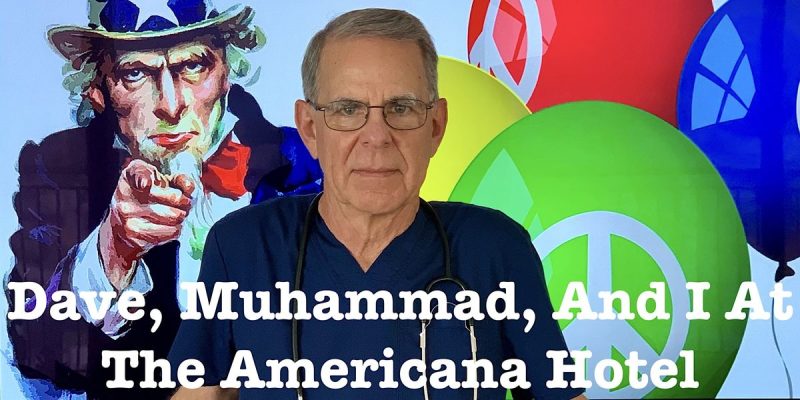If you ask Edward Lebowitz why he went to medical school, you might be surprised by his answer: the war in Vietnam.
“This was the greatest influence on my decision to become a doctor,” said Lebowitz, now 75 and a clinical professor of radiology at Stanford University. “I have no idea what I would have become if there had been no war.”
The war “threatened draft age men throughout my years in college,” he said. College provided a deferment, but after graduating from Syracuse University in 1968, “the war was hot” and Lebowitz was still at risk. “I felt I would be drafted into the infantry.”
So, he went to medical school. It and a two-year commitment of work for the U.S. Public Health Service work offered additional deferments – and a feeling that he’d served the country. There followed a 45-year career that included specialties in pediatrics, cardiology, pediatric cardiology and radiology and the chairmanship of radiology at Santa Clara Valley Medical.
Lebowitz believes the war “shaped the lives of baby boomers whether they set foot in Vietnam or not,” something he explores in his one-man play at the Exit Theater on Sept. 17.
What is courage?
In “Dave, Muhammad and I at the Americana Hotel,” Lebowitz plays the parts of two brothers during that period who come to different conclusions about what it means to be courageous, according to the playbill, as they respond to their “greatest generation” father and uncles as well as Muhammad Ali, a hero in Lebowitz’ eyes. The heavyweight champion declared himself, as a black Muslim, a conscientious objector whose “conscience won’t let me go shoot my brother, or some darker people, or some poor hungry people in the mud for big powerful America.”
The play is the result of an interest in fiction and playwriting that surfaced in his ’50s, when he was asking himself “what’s next?” Coming across Julia Cameron’s “The Artist’s Way” was the inflection point that turned him toward creative writing, classes at Osher Lifelong Learning Institute and the Marsh Theater, and a master’s degree in English at San Francisco State University.
“It changed my life,” he said. “You don’t read the book; you do the book. You can only do one chapter at a time, and you have to do all the exercises within that chapter. Later, she engages you in the creative process.”
New experiences
New endeavors, said Lebowitz, have helped to fend off the downsides of aging. “Keeping my eyes open to new experiences and opportunities has been a trait that’s stuck with me since childhood and may have enabled me to avoid the proverbial ruts that lead to depression and burnout.”
He retired in 2013 but still practices pediatric radiology at Stanford about one day a week and reviews articles for the peer-reviewed Journal of Interventional Radiology, his specialty. Interventional radiology employs an array of medical imaging technology to diagnose and treat disease and injury with minimally invasive procedures through very small incisions or body orifices.
While the Vietnam War propelled Lebowitz into a successful career he enjoyed, he also credits his wife, Charlene, with keeping him focused on learning and advancing. They met in Glens Falls, N.Y., where he was born, the middle of three sons. “I was in the 10th grade; she was in the 11th grade. She was diligent; I was a goof-off. I knew that to deserve her, I would have to change my ways and I did.”
A guiding wife
She supported him through everything, including moves to Syracuse, N.Y., Boston and Ann Arbor, Mich., and Pacifica, Berkeley, San Jose, Saratoga Los Gatos and San Francisco in California, and even Rockville, Md., where Lebowitz studied under a National Institute of Health fellowship.
They eventually made San Francisco their permanent home and for the last 10 years, they have lived in their Russian Hill condominium. They have two sons and a 12-year-old granddaughter.
He continues to write for medical publications, such as on Covid-19 for the American College of Radiology, but also fiction and a Covid-19 photo essay for Vistas & Byways, a literary magazine of the Osher Lifelong Learning Institute.
His other interest in retirement is travel, which was paused during the pandemic. Two family trips are now planned: sailing the Aegan Sea and a trip to Tunisa.
The intense politics that surrounded the Vietnam War abated, but he eventually became involved in more current issues.
He started a group to dispel some of the confusion, such as concepts like death panels, about the Affordable Care Act, and he attended marches protesting many of Donald Trump’s policies.

